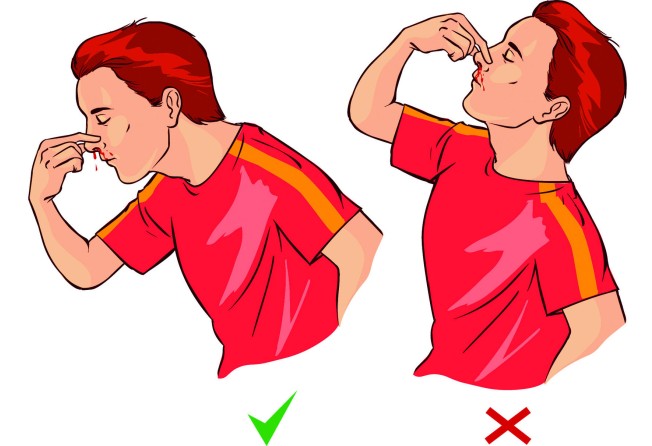Got a nosebleed? Stay calm, sit down, and don't tilt your head back

Q: The way to deal with a nosebleed is to tilt your head back
The straight answer: No
The facts: If you have ever experienced a nosebleed, your first reaction would have been to tilt your head back to stop the flow. But did you know that this "solution" might do your body more harm than good?
Most of us would have experienced a nosebleed at least once in our lives. They may occur spontaneously or from trauma, such as nose picking or a hit. Dr Ben Lam, resident physician at Raffles Medical Hong Kong, says spontaneous nosebleeds are common in people who have a thin nasal mucosa or nose lining.
The problem can be congenital - that is, the individual is born with it - or as a result of medication, such as the prolonged use of nasal spray. He adds that there is no direct association with high blood pressure and nasal bleeds, but in patients with high blood pressure, the bleeding is more difficult to control.
Nosebleeds can be classified as bleeding from the front or the back of the nose. Typically, the bleeding originates from the anterior part of the nose, in an area known as the Little's area. This is an area where four arteries join.
"Tilting the head back during a nosebleed is not recommended because this position causes the blood to run backwards and down the throat," says Lam.
"When blood runs down the throat, it may potentially flow down the airway and cause choking. If the blood is swallowed, it will enter the stomach and may cause irritation. This local irritation can cause nausea, and even pain and vomiting."
What, then, is the best way to treat a nosebleed? Lam suggests remaining calm and sitting down. Put your head in a slight forward position, and then apply firm pressure over the soft part of your nose. If the bleeding does not stop after 10 to 15 minutes of compression, it is best to seek medical help.
What you should never do is plug your nose, as this creates the potential for the blood to flow backwards towards your throat and cause problems.